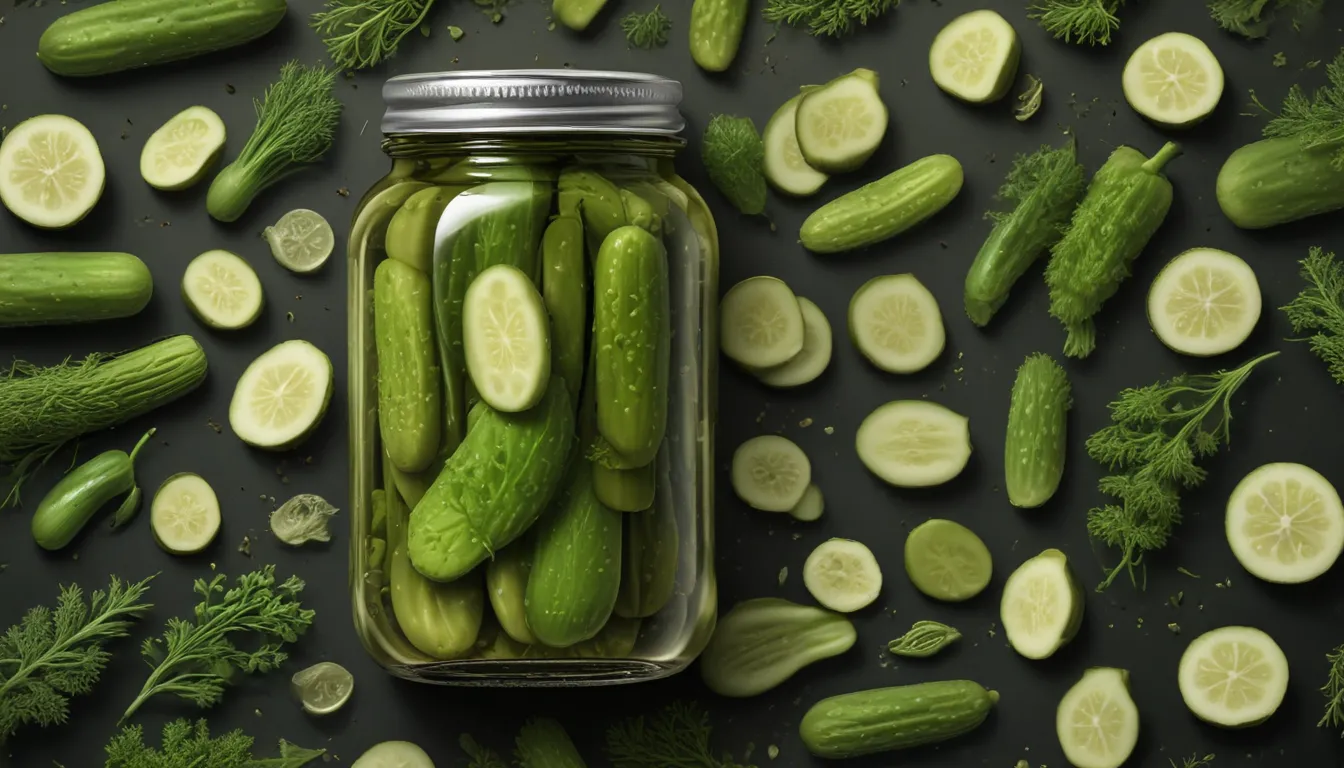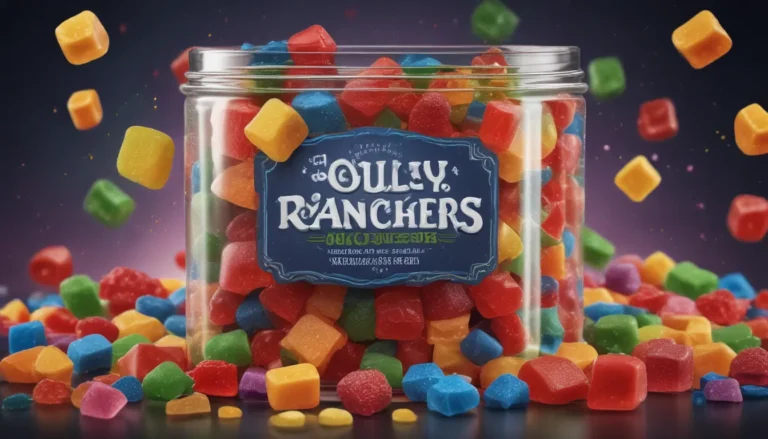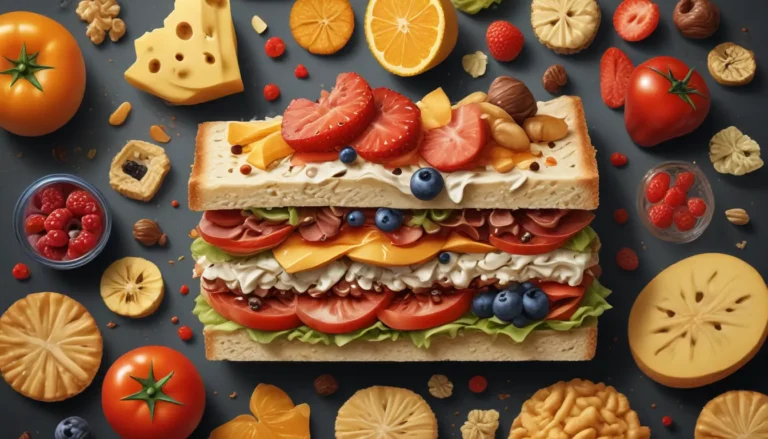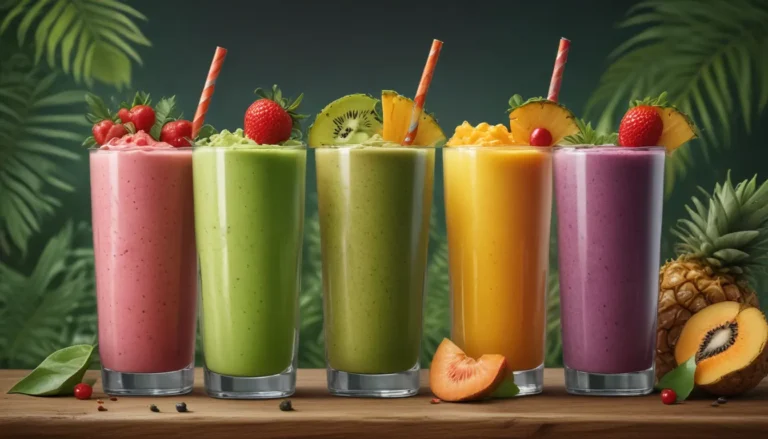The pictures in our articles might not always show exactly what the text is talking about. We use these images to make the article more interesting and eye-catching. They are there to add to the text, but not to replace it or show every detail.
Dill pickles, with their tangy flavor and satisfying crunch, are not just a delicious snack but also offer a range of health benefits that may surprise you. In this comprehensive guide, we will delve into the nutritional value of dill pickles, uncovering 10 fascinating facts that make them an excellent addition to your diet. Join us on a journey through the world of pickles as we explore their low-calorie content, hydration-boosting properties, potential probiotic benefits, and more.
The Delightful Low-Calorie Treat
One of the most appealing aspects of dill pickles is their low-calorie content, making them a guilt-free indulgence for those mindful of their caloric intake. A medium-sized dill pickle typically contains a mere 5 to 10 calories, depending on its size and ingredients. This makes dill pickles a smart and satisfying choice for snacking without derailing your diet goals.
Stay Hydrated with Pickles
Did you know that dill pickles can play a role in keeping you hydrated? Cucumbers, the star ingredient in dill pickles, boast a high water content, making them an excellent source of hydration. By incorporating pickles into your diet, you can boost your fluid intake in a refreshing and flavorful way, particularly on hot summer days when staying hydrated is crucial.
Antioxidant-Rich Goodness
In addition to their delightful taste, dill pickles also pack a punch when it comes to antioxidants. Cucumbers, even when pickled, retain some of their antioxidant properties, including vitamin C and beta-carotene. These antioxidants play a vital role in protecting your body against free radicals, promoting overall health, and potentially offering anti-inflammatory benefits.
The Power of Probiotics in Pickles
Certain types of dill pickles, particularly those made through fermentation, offer probiotic benefits that can support a healthy gut microbiome and aid digestion. Fermented pickles undergo a unique process that encourages the growth of beneficial bacteria known as probiotics. Incorporating these probiotic-rich pickles into your diet can have a positive impact on your digestive health.
Essential Vitamins and Minerals
While dill pickles may be low in calories, they do contain a range of essential vitamins and minerals that contribute to your overall well-being. These include small amounts of vitamins A, K, and various B vitamins, along with minerals like calcium, potassium, and magnesium. Every bit of these nutrients adds up to support your body's needs.
Beware of Sodium Levels
When enjoying dill pickles, it's crucial to be mindful of their sodium content. Pickles are typically brined in a salt solution, resulting in a higher sodium concentration. For individuals watching their sodium intake, consuming pickles in moderation or choosing low-sodium options is essential to maintain a balanced diet.
Vinegar for Digestive Health
The vinegar used in pickling dill pickles offers potential digestive benefits by increasing stomach acidity, which aids in food breakdown. This can contribute to overall digestive comfort and efficiency. Adding dill pickles to your meals may provide a flavorful and digestion-friendly touch to your culinary creations.
Snack Smart with a Crunch
Craving a crunchy snack? Look no further than dill pickles! Their firm texture and satisfying crunch make them a delightful alternative to high-calorie snacks. Enjoying a dill pickle can curb your less healthy snack cravings while offering a flavorful and satisfying snacking experience.
Culinary Adventures with Dill Pickles
Dill pickles are not just for snacking— they can also elevate the flavor profile of a variety of dishes. Whether you're adding them to sandwiches, burgers, salads, or appetizers, their tangy taste can bring a zesty twist to your meals. Get creative in the kitchen and experiment with different ways to incorporate dill pickles into your culinary creations.
Embrace Homemade Pickle Delights
Why not take your love for dill pickles to the next level by making your own homemade versions? Crafting your pickles allows you to customize the ingredients, control additives, and tailor the flavors to your preferences. With fresh cucumbers, dill, and your choice of brine, you can create a healthier and more personalized pickle option right in your own kitchen.
In Conclusion
With these 10 enlightening nutrition facts about dill pickles, you now have a deeper understanding of their nutritional benefits and culinary versatility. By incorporating dill pickles into your diet, you can add a flavorful touch to your meals while reaping the hydration, antioxidant, and probiotic rewards they offer. So, grab a dill pickle, savor the tangy goodness, and enjoy the healthful benefits they bring to your plate.
Frequently Asked Questions (FAQs)
Can dill pickles help with weight loss?
Dill pickles can be a helpful addition to a weight loss diet due to their low-calorie and high-fiber content. However, it's essential to consume them as part of a balanced and varied diet that includes other nutritious foods.
Are all pickles fermented?
While traditional pickles are made through fermentation, not all pickles undergo this process. Some pickles are made using vinegar and do not go through fermentation, each offering its unique flavors and characteristics.
Can pickles alleviate muscle cramps?
Pickles contain electrolytes like sodium and potassium that are crucial for muscle function. Consuming pickles may help maintain electrolyte balance and potentially alleviate muscle cramps, particularly during intense physical activity.
Do dill pickles aid in digestion?
Dill pickles, especially those made with vinegar, can support digestion by increasing stomach acidity, which aids in food digestion. This can enhance overall digestive processes and promote digestive comfort.
Are pickles suitable for individuals with high blood pressure?
Individuals with high blood pressure should consume pickles in moderation due to their sodium content. Opting for lower-sodium pickle varieties or making homemade pickles with reduced salt can be a better choice for those with hypertension.
Trust in our commitment to providing accurate and engaging nutritional information as you explore the wonderful world of dill pickles. Each fact we share is contributed by real users like you, ensuring a diverse range of insights and information for your benefit. Our dedicated editors rigorously review each submission to maintain the highest standards of accuracy and credibility. Enjoy your journey of discovery and learning with us.






